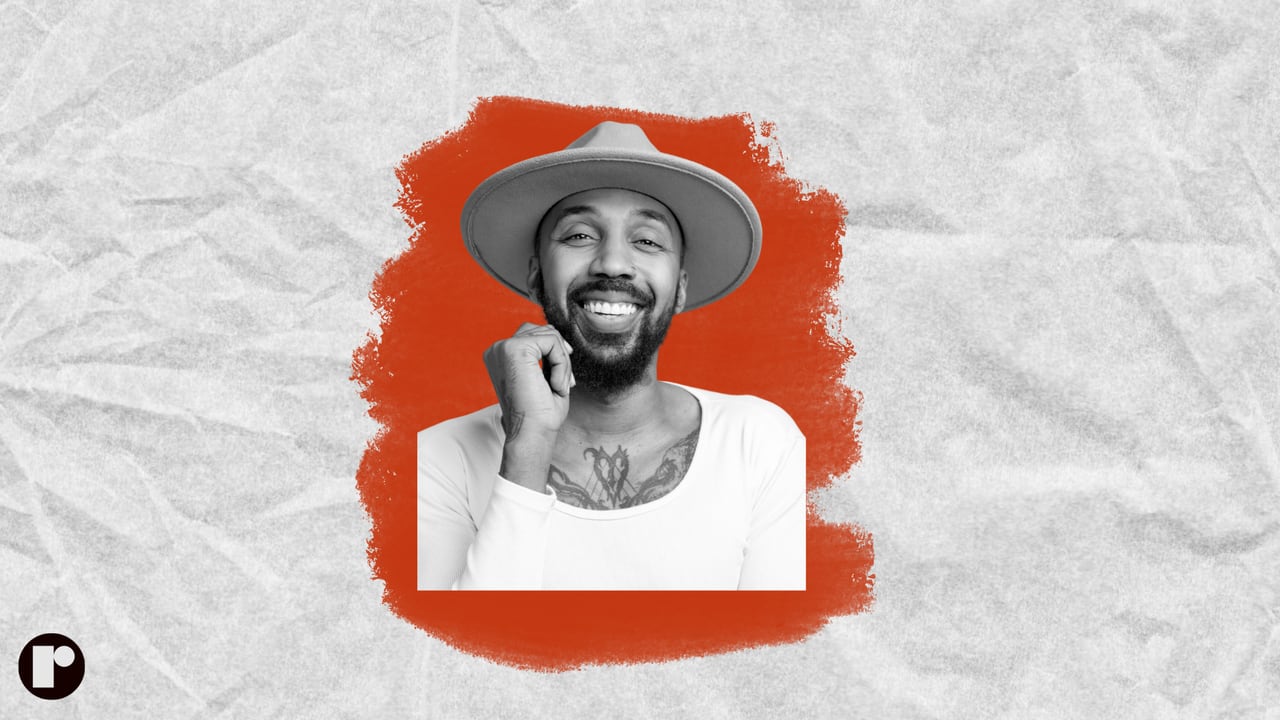Eradicating the Stigma: George M. Johnson
Editor’s note: For World AIDS Day 2023, Reckon interviewed people from across the U.S. about living with and battling the persistent stigma that people living with HIV/AIDS still confront today. From those deeply personal, wide-ranging interviews, we published profiles of five people about their journey and fight to eradicate stigma.
Thirteen years ago, George M. Johnson would have thought it was impossible to have a full, successful life surrounded by a loving and supportive community. That’s because on November 19, 2010, in Richmond, Virginia, a then-25-year-old Johnson was diagnosed with HIV.
“I had a complete meltdown. I was not highly educated on what HIV was outside of the stigma. It’s still taboo in Richmond, but it was extremely stigmatized back then. There were only two main places that you could even get HIV testing done,” they tell Reckon.
Today, Johnson, now 38, is a New York Times best-selling author based in Los Angeles. But when they were first diagnosed, Johnson had no idea about the advancements made in HIV treatment since the ‘80s and ‘90s. They thought they were going to die. “It took a toll on my mental health. I didn’t know about treatment options, have resources or a circle of people to support me because none of us knew about any of those things,” they say.
So, outside disclosing their status to partners, Johnson kept it to themselves for three years. Now, Johnson’s outlook has changed drastically. They lead a public life without hiding or feeling shame about their HIV diagnoses. “A lot of people know that being diagnosed inspired me to help others not have to have that same experience of feeling like they had no support or resources,” they tell Reckon.
Around 2014, Johnson began doing HIV advocacy work in Washington, D.C. At the time, there were few published news articles about living with HIV to provide clients. So Johnson started writing for TheBody.com and a column for the nonprofit HIV publication A&U magazine.
“It was transformative because where I cut my teeth was writing stories about HIV. Something that I thought was the end was the thing I needed in many ways to find my purpose. I now live this purpose-driven life where HIV is a component, and I can be a source of light for so many people who still deal with it in silence,” Johnson says.
If societal stigma was less pervasive when they were diagnosed, Johnson would’ve done things differently. “Had there been no stigma around it, I would have told my friends and not go through it for so many years alone. I didn’t want to tell people because I didn’t want them to label me that way,” they tell Reckon.
But even now, ignorance still fuels the stigma surrounding HIV. People still hurl it like a slur, as if it’s a death sentence and not something you can live with, survive, and thrive.
This World AIDS Day, Johnson says the best way to show up for folks living with HIV is to be out loud about their support for their HIV-positive family, friends, and lovers to truly reduce stigma. “I want our population not to be looked at as lepers,” they say. “Those stigmas of deviancy, sin, abomination, and death sentences are the ones that still bother me the most because they prevent people from getting tested due to fear-mongering. I hope we can start eradicating some of those.”
Above all, Johnson wants people to know that HIV is not a crime, a punishment from the gods, or retribution from the world. This, despite many jurisdictions having laws on the books that treat HIV different than comparable diseases, disproportionately punishing positive people for disclosure or exposure.
“It can affect anyone, and it should not continue to be criminalized. A lot of these laws were made when we didn’t have education, resources, medication, or treatments for HIV. So I want us to fight harder to decriminalize this as we continue to work towards finding a cure,” they say.
